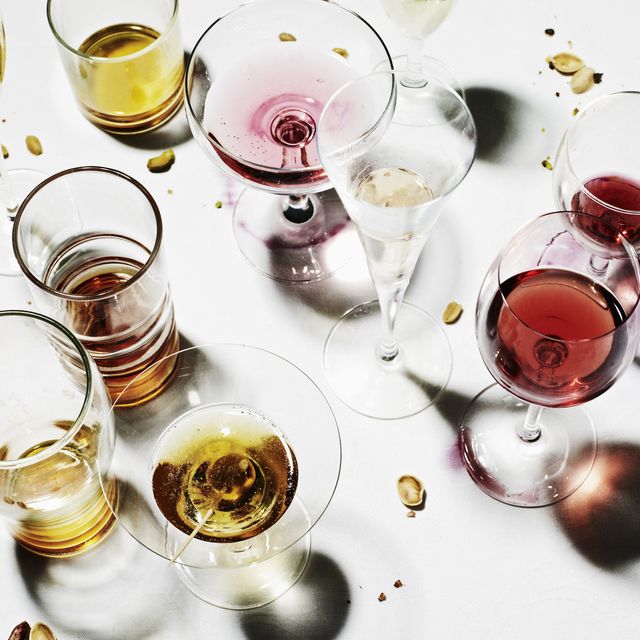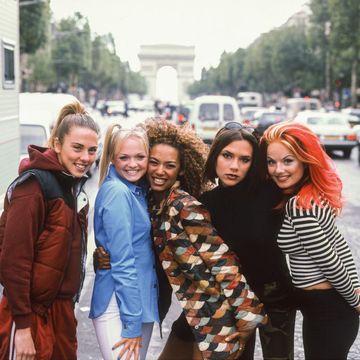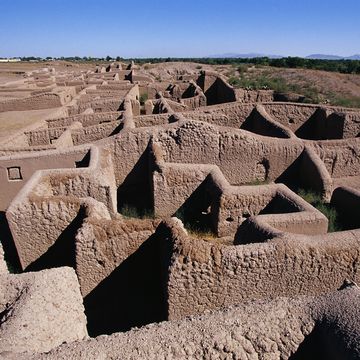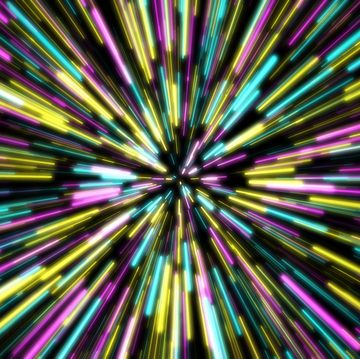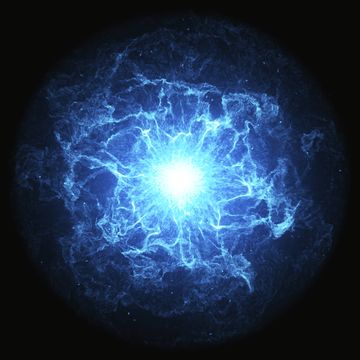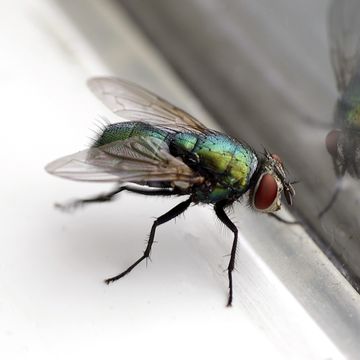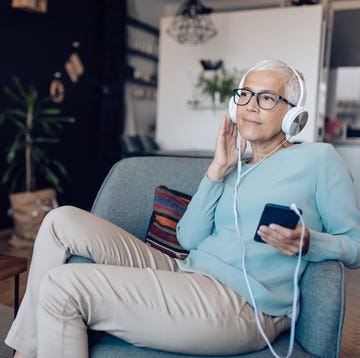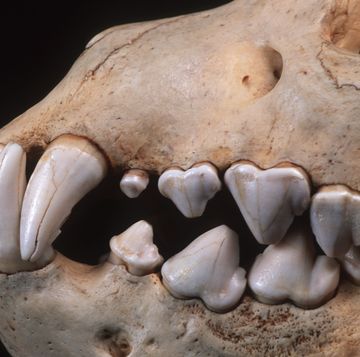For decades, people have searched for hangover cures that will make them feel better the morning after. But, despite plenty having go-to remedies that they swear by, new research suggests that there’s no such thing as a hangover cure.
The scientific review, which was published in the journal Addiction, analyzed 21 placebo-controlled randomized trials of popular hangover cures, including clove extract, red ginseng, and Korean pear juice. Here’s the full list of cures that were studied:
- Curcumin
- Duolac ProAP4 (probiotics)
- L-cysteine
- N-Acetyl-L-Cysteine (NAC)
- Rapid Recovery (L-cysteine, thiamine, pyridoxine and ascorbic acid)
- Loxoprofen (loxoprofen sodium)
- SJP-001 (naproxen and fexofenadine)
- Phyllpro (Phyllanthus amarus)
- Clovinol (extract of clove buds)
- Hovenia dulcis Thunb fruit extract (HDE)
- Polysaccharide rich extract of Acanthopanax (PEA)
- Red ginseng
- Korean pear juice
- L-ornithine
- Prickly pear
- Artichoke extract
- “Morning-Fit” (dried yeast, thiamine nitrate, pyridoxine hydrochloride, and riboflavin)
- Propranolol
- Tolfenamic acid
- Chlormethiazole
- Pyritinol
While some studies showed that participants had statistically significant improvements in their symptoms, the researchers pointed out that the evidence was low quality due to things like methodological limitations or imprecise measurements. Also, none of the studies analyzed the same hangover remedy and none of the results were replicated after the initial findings.
“Evidence on these hangover remedies is of very low quality and there is a need to provide more rigorous assessment,” lead author Emmert Roberts, Ph.D., clinical research fellow at Kings College London, said in a statement. “For now, the surest way of preventing hangover symptoms is to abstain from alcohol or drink in moderation.”
Doctors agree that a lot of common hangover “cures” are total myths. “There really is no ‘cure,’ so don’t waste your money on any fancy pills or remedies,” says Jamie Alan, Ph.D., an associate professor of pharmacology and toxicology at Michigan State University. That said, there are some things you can do to try to help yourself feel better after you’ve overindulged. Here, the science-backed hangover treatments that will actually make you feel better (and the ones that are a waste of your time).
But first, what exactly causes a hangover?
You know what it feels like, but why? “Alcohol is a direct irritant to the gastric mucosa [the mucous membrane layer of the stomach],” says Dr. Eric Goldstein, M.D., a board-certified gastroenterologist and clinical instructor at Mount Sinai in New York. “This can result in nausea and that raw, empty feeling in your stomach when you wake up after a night of drinking.”
Your brain is a factor, too, Dr. Goldstein says. “Alcohol triggers a particular zone in the brain responsible for detecting poison in the bloodstream, called the chemoreceptive trigger zone,” he explains. That trigger zone can cue up nausea and vomiting in an effort to help your body eliminate toxins.
A metabolite of alcohol called acetaldehyde can also make you feel crummy, Alan says. “You have to wait until this product is metabolized and flushed out of the body before you get any better,” she says. “You can treat the symptoms like headaches and things, but there really isn’t anything you can do but wait.”
Hangovers are also thought to be caused by compounds in your drink called congeners, toxic biproducts that are formed in alcohol during the fermentation process," explains Dr. Niket Sonpal, M.D., an adjunct professor at Touro College of Osteopathic Medicine in New York. “When you drink, you’re forcing your body to metabolize both the alcohol and the congeners, which is what is giving you these hangover symptoms.”
The congeners theory helps explain why dark alcohols like bourbon tend to give you a nastier hangover than its clear counterparts, Dr. Sonpal adds. A 2010 study published in the journal Current Drug Abuse Reviews found that bourbon, the highest congener beverage, resulted in reports of more severe hangovers compared to vodka, which has almost no congeners. Alcohol also causes dehydration and sleep disturbances—both of which make the symptoms of your hangover the next day a lot worse.
When you find yourself feeling trashed the next morning, experts stress there’s no miracle cure, but there are a few things they recommend to help cure (and prevent) a hangover.
1. Eat before you go out
“Food can help buffer the irritating effect that alcohol has on the lining of the stomach,” says Freuman. Eating before, or while you’re drinking will also help your body gradually process alcohol by slowing how quickly your stomach empties. This changes how quickly alcohol gets absorbs into your intestines and gives your enzyme systems time to break down the alcohol.
2. Follow the 1:1 rule
Drinking plenty of non-alcoholic fluids during a night out will also help prevent a hangover, says Dr. Sonpal. He recommends having one glass of water between each alcoholic drink. "It doesn’t always prevent dehydration, but it will help buffer the effects," he says. Another perk: “It will naturally slow you down with how fast you can ingest ethanol into your system,” says Cedric Dark, M.D., assistant professor of emergency medicine at Baylor College of Medicine. Before you go to bed, Dr. Sonpal suggests grabbing a Gatorade or other electrolyte-based drink to help your body retain more fluid.
3. Replenish your electrolytes
While plain water is always a good choice to help you rehydrate and restore the fluids lost from alcohol consumption, drinking fluids with electrolytes or a salt-based drink may be a more effective way to cure your headache, says Tamara Duker Freuman, M.S., R.D., C.D.N., a New York-based dietician. Think: sports drinks like Gatorade, salty liquids like tomato juice or bone broth, or Pedialyte. You can also buy effervescent tablets that dissolve in water and contain aspirin and caffeine to help combat headaches while replenishing.
4. Make a big breakfast
“Eating a good breakfast helps replenish blood sugar, vitamins, and minerals. All that energy from food is then used by your liver to help your body overcome the excess alcohol it’s processing,” says Dr. Sonpal. For the best hangover breakfast, look for a healthy portion of protein, fats, and carbs on your plate. Opt for choices like eggs, avocado toast, or a big bowl of oats with fresh fruit.
5. Take a nap
“Sleep is very underrated in terms of hangover treatment,” Dr. Sonpal says. Even if you pass out immediately after a few glasses of wine, the quality of sleep you’re getting is actually a lot worse than normal, he explains. “While lack of sleep doesn’t actually cause a hangover, it can make your symptoms worse.” To help cure your hangover, take a nap. Budgeting time for extra sleep will nix next-day sluggishness.
6. Take certain OTC pain relievers
Reaching for aspirin, ibuprofen, or naproxen can help if you’re struggling with a headache, Dr. Dark says. One thing you don’t want to take, per Alan, is acetaminophen (Tylenol). “Both Tylenol and ethanol can be toxic to the liver,” she explains. “Using both at once should be avoided if possible.”
You’ve probably heard that the following “cures” can help you feel better after a rough night, but doctors say there’s no evidence to support that they do anything for hangovers. Here’s why.
1. Supplements
You can find pills that contain dihydromyricetin (DHM), milk thistle, or prickly pear cactus extract and purport to help by providing nutrients and enhancing your body’s natural detox process. However, studies haven’t conclusively proved that those ingredients prevent or cure hangovers, so it’s probably better to spend that money on an electrolyte drink or a hearty meal.
2. Hair of the dog
For a run of the mill hangover, a breakfast beer or cocktail will only serve to dehydrate you more—the exact opposite of what you want to do to cure a hangover. “Having a drink in the morning is supposed to help you feel better, but this refers primarily to alcoholics who are experiencing withdrawal symptoms after a night of drinking,” explains Dr. Sonpal. “The idea is that a low dose of alcohol, like a Bloody Mary, would theoretically buffer those withdrawal symptoms—we don’t actually recommend this, however.”
3. Tons of caffeine
Technically, a caffeine boost can help you feel better—but it’s a short-term fix, says Dr. Sonpal. Initially, “It’s going to make you feel mentally less foggy and fatigued,” he says. But just like alcohol, caffeine is a diuretic, so it dehydrates you—thus fueling your hangover symptoms.
4. Late-night snacks
You might be tempted to soak up alcohol with a carb-loaded plate of snacks before last call or raid your refrigerator for greasy leftovers once you get home. But eating before bed won’t do anything to subtract from your alcohol consumption. “Alcohol doesn’t linger too long in the GI tract before being taken up into the blood,” says Freuman.
5. Exercising
“Sweating out the alcohol doesn’t make sense from a physical standpoint,” explains Dr. Sonpal. “You can’t actually sweat alcohol out—your liver has to metabolize it.” This so-called cure isn’t just bogus, it can actually be dangerous, Dr. Sonpal adds. “There’s been a lot of cases where people try to work out when they come home to prevent a hangover—and obviously you can injure yourself.” Even working out the next morning can be risky and make your hangover worse, since you’re already dehydrated and more likely to get hurt or worse, pass out.
Stay updated on the latest science-backed health, fitness, and nutrition news by signing up for the Prevention.com newsletter here. For added fun, follow us on Instagram.
Macaela MacKenzie is a journalist who writes about women and power. She covers women’s equality through the lenses of sports, wellness, and the gender gap across industries and is the author of MONEY, POWER, RESPECT: How Women in Sports Are Shaping the Future of Feminism. Mac was most recently a Senior Editor at Glamour where she directed all health and wellness coverage. Her work has appeared in Elle, Glamour, SELF, Bustle, Marie Claire, Allure, Women's Health, and Forbes among other publications.
